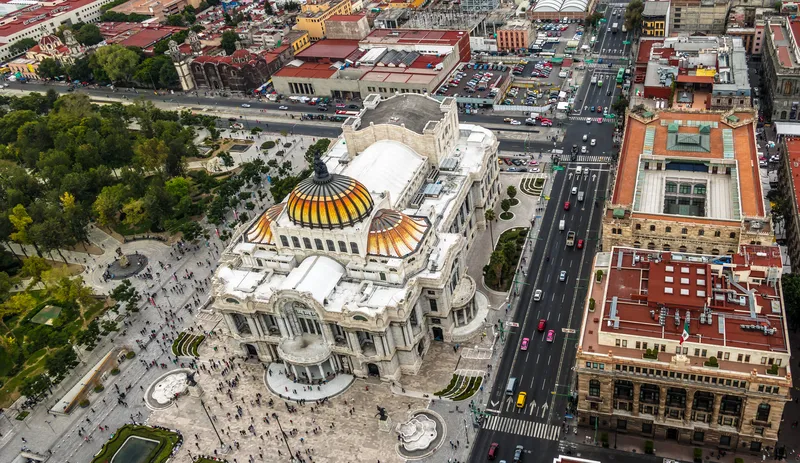According to TomTom’s latest Traffic Index, traffic congestion has increased 13 per cent globally since 2008. But there are big differences between continents; while North America’s traffic congestion has jumped by 17 per cent, Europe has risen just two per cent.
TomTom believe the contrasts probably are driven by economic growth in North America and financial troubles in the many parts of Europe. In particular, some countries have recorded a marked drop in traffic over the past eight years, including It
March 23, 2016
Read time: 2 mins
According to 1692 TomTom’s latest Traffic Index, traffic congestion has increased 13 per cent globally since 2008. But there are big differences between continents; while North America’s traffic congestion has jumped by 17 per cent, Europe has risen just two per cent.
TomTom believe the contrasts probably are driven by economic growth in North America and financial troubles in the many parts of Europe. In particular, some countries have recorded a marked drop in traffic over the past eight years, including Italy, which saw a drop of seven per cent and span with a drop of 13 per cent.
Using data from 2015, the TomTom Traffic Index assessed traffic congestion in 295 major cities in 38 countries on six continents, from Rome to Rio, Singapore to San Antonio.
Globally, Istanbul has been knocked off the top spot by Mexico City. Commuters in the Mexican capital can expect to spend 59 per cent extra travel time stuck in traffic during the day, rising to 94 per cent in the evening peak period – a total of 219 wasted hours a year.
The next most congested big cities worldwide are Bangkok (57 per cent), Istanbul (50 per cent), Rio de Janeiro (47 per cent) and Moscow (44 per cent).
In North America, Mexico City ranked number one with an overall congestion level of 59 per cent, followed by Los Angeles at 41 per cent, ahead of San Francisco, Vancouver, New York, Seattle, San Jose, Toronto, Honolulu and Miami. Drivers in some cities even enjoyed a reduction in traffic congestion from last year, including Las Vegas, Denver, Tucson, St Louis, Detroit, Minneapolis and Milwaukee.
Moscow ranked highest in Europe, with a congestion level of 44 per cent, followed by Bucharest at 43 per cent, Saint Petersburg, Warsaw, Rome, London, Marseilles, Manchester, Athens and Paris.
According to Ralf-Peter Schaefer, vice-president of TomTom Traffic, transport authorities are managing congestion with well-engineered policies, but people aren’t doing enough to change their travel habits - such as working flexible hours, avoiding peak commuting times, making use of real–time traffic information and trying alternative travel modes.
“If only five per cent of us changed our travel plans, we could improve traffic congestion on our main roads by up to thirty per cent,” he said.
TomTom believe the contrasts probably are driven by economic growth in North America and financial troubles in the many parts of Europe. In particular, some countries have recorded a marked drop in traffic over the past eight years, including Italy, which saw a drop of seven per cent and span with a drop of 13 per cent.
Using data from 2015, the TomTom Traffic Index assessed traffic congestion in 295 major cities in 38 countries on six continents, from Rome to Rio, Singapore to San Antonio.
Globally, Istanbul has been knocked off the top spot by Mexico City. Commuters in the Mexican capital can expect to spend 59 per cent extra travel time stuck in traffic during the day, rising to 94 per cent in the evening peak period – a total of 219 wasted hours a year.
The next most congested big cities worldwide are Bangkok (57 per cent), Istanbul (50 per cent), Rio de Janeiro (47 per cent) and Moscow (44 per cent).
In North America, Mexico City ranked number one with an overall congestion level of 59 per cent, followed by Los Angeles at 41 per cent, ahead of San Francisco, Vancouver, New York, Seattle, San Jose, Toronto, Honolulu and Miami. Drivers in some cities even enjoyed a reduction in traffic congestion from last year, including Las Vegas, Denver, Tucson, St Louis, Detroit, Minneapolis and Milwaukee.
Moscow ranked highest in Europe, with a congestion level of 44 per cent, followed by Bucharest at 43 per cent, Saint Petersburg, Warsaw, Rome, London, Marseilles, Manchester, Athens and Paris.
According to Ralf-Peter Schaefer, vice-president of TomTom Traffic, transport authorities are managing congestion with well-engineered policies, but people aren’t doing enough to change their travel habits - such as working flexible hours, avoiding peak commuting times, making use of real–time traffic information and trying alternative travel modes.
“If only five per cent of us changed our travel plans, we could improve traffic congestion on our main roads by up to thirty per cent,” he said.







